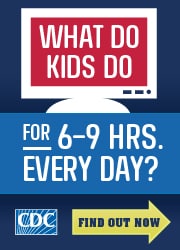WACO, Texas — The ongoing pandemic will cause thousands of Central Texas children to trade out the traditional classroom for a computer screen now with virtual learning as an option.
This means more screen time for students than previous years.
Dr. Brian Barkley, a pediatrician at Baylor Scott and White said screen time isn't a bad thing.
"I'll be the first to admit that my kids have spent more time on the screen in the last handful of months than I would like, but that's part of the new normal and part of exceptional circumstances," Dr. Barkley said.
If children watch television, use their computer, tablet, or smart phone for an appropriate amount of time, Dr. Barkley said it's a healthy release for them.
However there are short-term and long-term negative effects if it's too much, such as sleep deprivation, lack of physical activity, and changes in academic performance.
"Screen time when you're using it for the wrong reasons is a bad thing, so I think screen time is part of the new normal but it's also part of what kids are going to be dealing with in their future," Dr. Barkley said.
Some things parents can do to maintain a healthy balance is decrease your child's screen time one to two hours before bed time. If your child is learning from home, take enough breaks and incorporate other activities like sleep, reading for enjoyment, exercise, and chores.
Dr. Barkley said you don't want kids to think they won't get to have enjoyable screen time.
"If it's, well you've been on your iPad for four hours today, well maybe a lot of that or most of it was school learning and your school activity, so you still want to give them some down time," Dr. Barkley said.
The CDC recommend parents should pay attention to what children see or hear on TV and online, especially when if it's related to Covid-19 bcause too much information on one topic can lead to anxiety.
Resources for parents:



